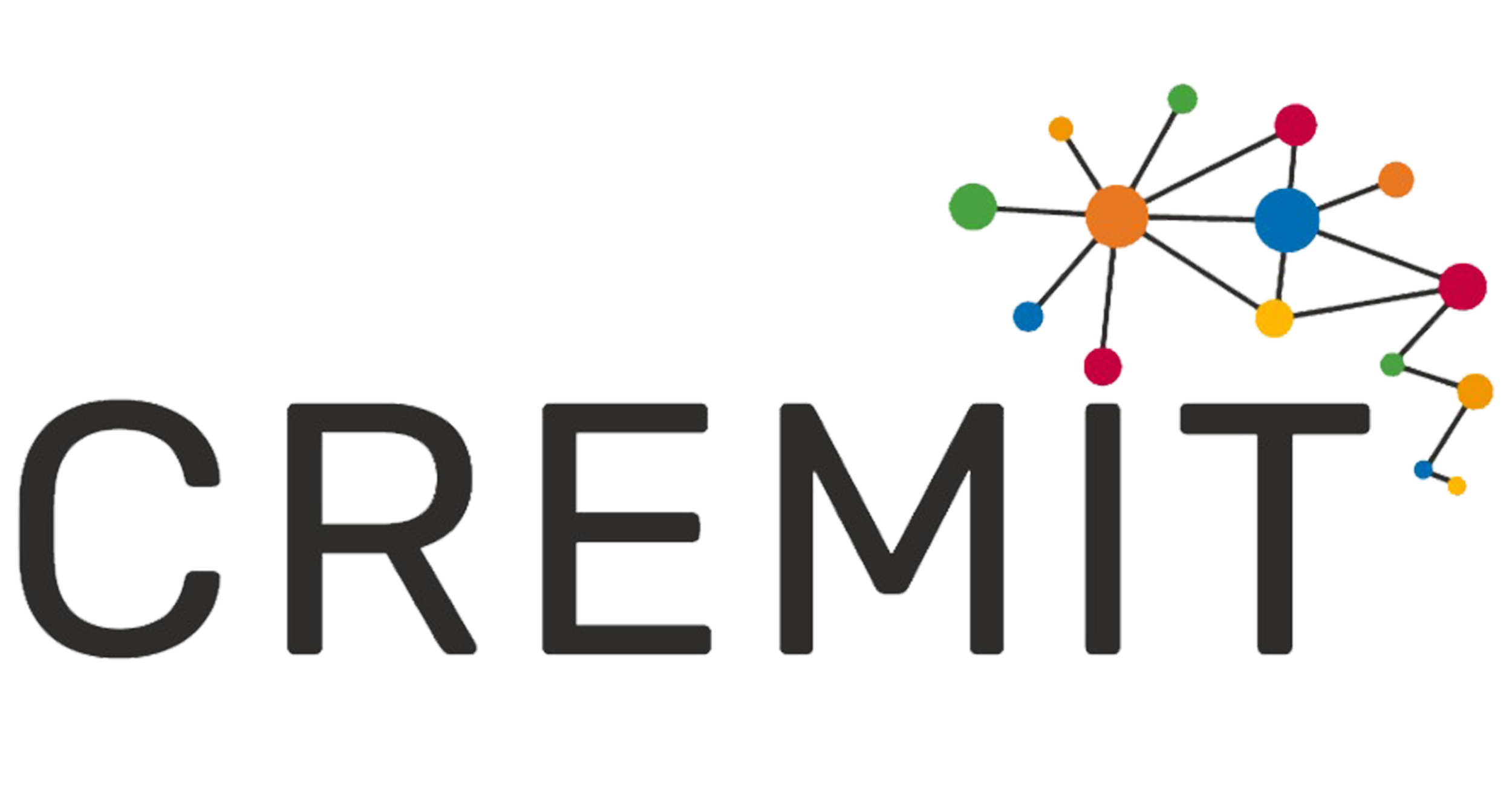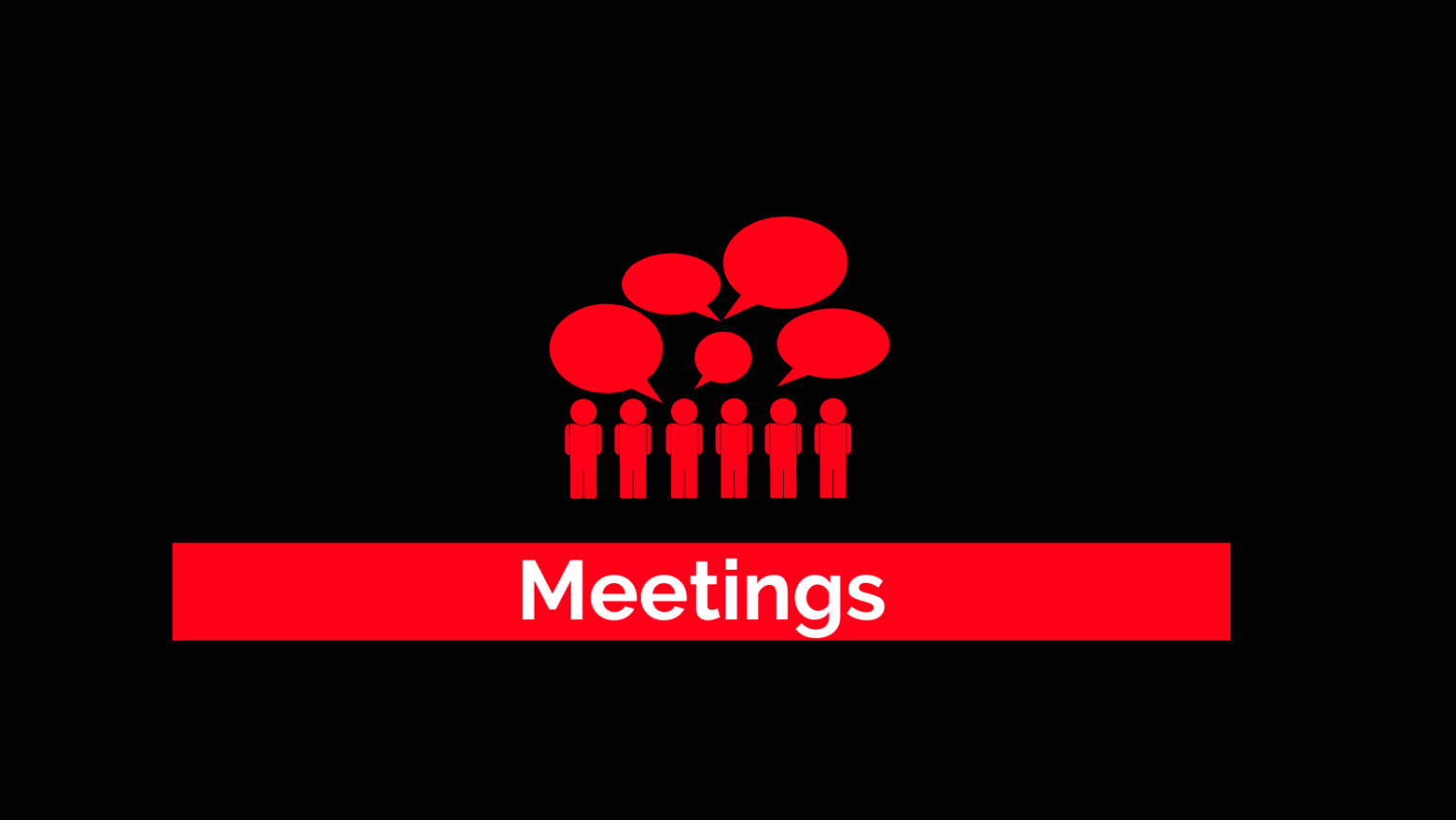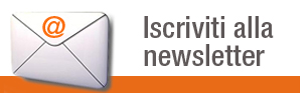3rd Transnational Project Meeting | 27-28 June 2022
✅ For the Italian version please click here 🇮🇹
The 3rd Check & Design Transnational Project Meeting occurred between 27-28 June 2022 hosted by IV Liceum staff surrounded by the charming landscape of Bydgoszcz city.
The meeting has been set after the Joint Staff Training Event in Lisbon and IO1 local pilots in order to assess the students and teachers feedbacks who actively participated in the MOOC deployment and the implementation of e-tivities.
The gathering was then driven towards the final settings of IO2 technical requirements and educational phases in order to correctly deliver the next Digital textbooks activities to create a collaborative learning delivery at school.

- First of all, a brief recap of the MOOC
the course enhances the knowledge related to the following issues (MOOC weekly topics): Media and News, Algorithm, Search, Copyright, Source, Online Participation
Each module of the MOOC provides video lessons, thematic in-depth resources, e-tivities (learning work mandates) to be adopted in each classroom, digital materials for deepening each topic, a final test. Different uses of the MOOC are allowed in schools: blended, online and self-paced instruction; Peer&Media education activities
The learning impact of the learning activities focuses on:
Reflecting on information and how digital changed this concept
Browsing, searching and filtering data, information and digital content
Evaluating data, information and digital content
Participating and contributing as producers in the digital environments.
The MOOC pilots have been implemented by more than 200 participants (174 students and 27 teachers) and with an encouraging range of 4,7-5 (out of 6 as maximum rating) the following features have been evaluated by the students: The general organization of the course, The online environment (platform), The teaching materials, The activities/tasks suggested, The discussions within the forum, The role of the tutors, The Self-Evaluation tests. The scores of the latter testifies, moreover, the innovative side of the MOOC as many answers reveal lacks of knowledge in particular on digital debunking practices and the role algorithms play over the a search engine enquiry.
Teachers analysed in depth their feedback and a constructive focus group found place over the meeting. Still a thrilling average of 5 out of 6 distinguished the following topics: general structure, overall experience, teaching materials, activities, the possibility to include the MOOC in a life-long learning educational setting for European schools’ teachers. Rooms for improvement has been detected on the appealing layout of the online environment, a potential reward system to make the users implementation more catchy and the settings for the forum discussion.
In order to exploit the focus group, the MOOC pilot version will be fine-tuned according to the directions suggested by the teachers and the enhancements will be shown to the teachers on a further online meeting at partnership level for the final validation.
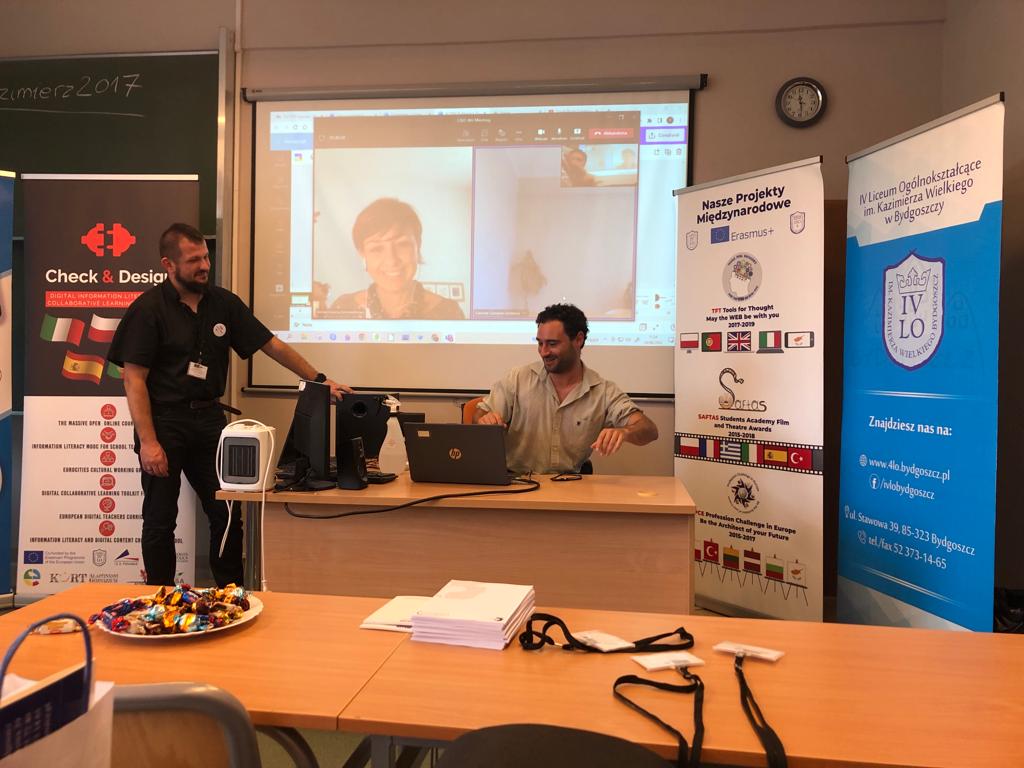
The focus of the meeting has been shifted towards the Digital Textbook Creations as the schools teachers will create collaborative learning environment with their students turning the classroom into an digital editorial team. By exploiting the previous research on Eurocities, the teachers will encourage students to realise a digital textbook on the cultural activities promoted by their city councils.
Archilabò led the illustration and explanation of the learning delivery. After a first state-of the-art of the overall Toolkit (Intellectual Output 2) already envisaging thick sections on:
- General didactical methodologies which make use of cooperative learning and digital tools in order to improve students’ engagement and participation in school activities;
- difference between collaborative and cooperative learning
- How to manage the cooperative classroom;
- Classbuilding: How to create a caring, cooperative community of learners;
- Teambuilding: How to develop powerful learning teams, creating a team identity, promoting mutual support;
- The 4 principles: positive interdependence; individual accountability, equal participation, simultaneous interaction
- Teachers’ role and the impact on students
The Italian team then built up a simulation-workshop to put teachers in the position to practically:
- Create an account
- Profile settings
- Create a new book + book settings
- Chapters’ structure (Index)
- Create a group and share the book → (owner vs collaborators)
- Enter content into the book
- Collaboration process
- Publish the book in cooperative press and export pdf of the book
Accordingly, the partnership exploited the meeting time-being setting the stage for the forthcoming (and IO2 tasks related) virtual exchanges and school contests where the digital textbooks will provide the chance for a mutual cultural investigation for the students’ groups coming from different countries !
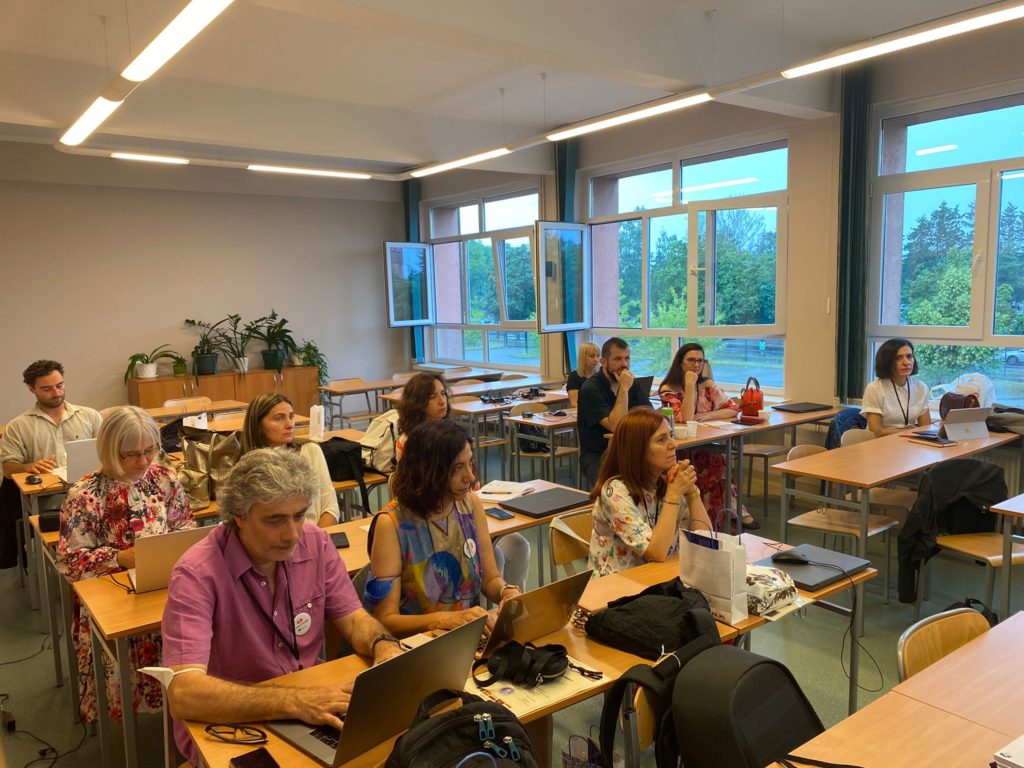
The work on the Guideline (IO3) will be carrying on by the Coordinator through the realisation of a comparative report among the different digital and information literacy learning settings in the 5 EU countries represented by the partnership (underpinned by the previous research work made by teachers).
The evaluations of the meeting delivered by the participants, recorded through related questionnaire and collected into an evaluation report, testifies again a positive atmosphere, a good communication among partners and a personal and organisational satisfaction in the project membership!
2nd Transnational Project Meeting | 5-6 July 2021
✅ For the Italian version please click here 🇮🇹
The Second Meeting was attended by the organisations belonging to the partnership in order to update and coordinate the project’s activities and products carried out so far. Due to Covid-19 restrictions and the unstable situation of the flights’ procedures in Europe the meeting was re-scheduled online, keeping the quality foreseen by the application and the objectives’ achievements.
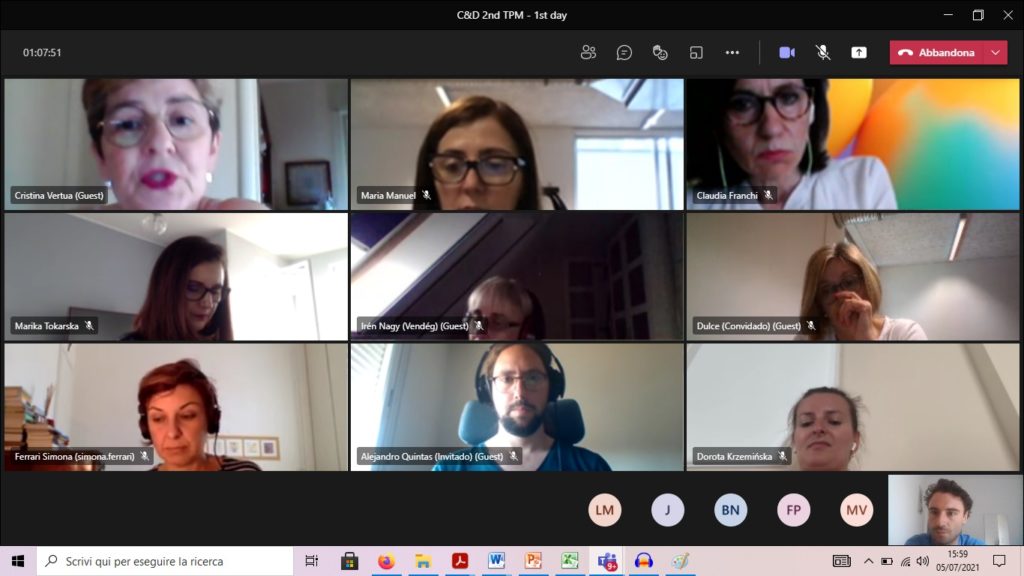
For a quick review of the Projects Ouptus click here !
The meeting started with a look to the MOOC development that is going to provide an affordable and flexible way to learn new skills, advance teachers’ career and deliver quality educational experiences for students.
A wide survey among students was delivered and deployed by the school teachers involved through a questionnaire realised by UCSC. The stunning performances (2.940 respondents) led partnership to implement and share an additional survey to school teachers represented by the partnership (150 in total) achieving a comprehensive framework well-beyond the application’s expectations. The results provided a clear framework of students’ and teachers’ usage of the online world, defining type of contents seek, shared and produced, level of news analysis, exploitation of digital tools in classrooms, most common topics shared, most common apps used, ethics, role of formal and informal rules about digital usage at school and at home, search engines’ management, fact-checking/lateral reading attitudes, privacy issues.
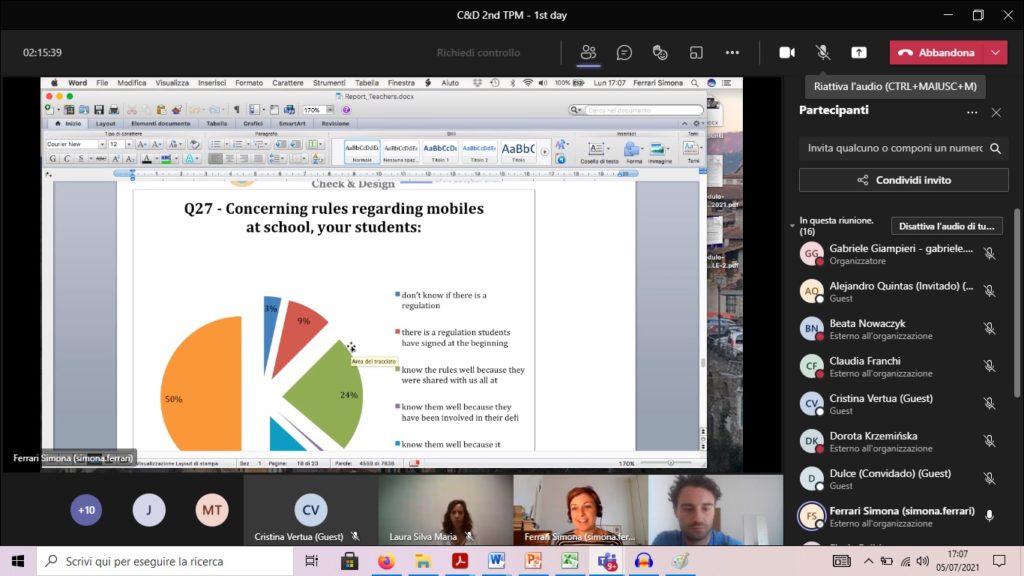
The development of the tool was undertaken by UCSC staff who presented the main feature over the meeting. The MOOC is being designed as an 8-weeks training for students and it will deploy the following main topics: News and media (information, Fake,) Algorithm (personal data and data organization), source (evaluation), Search (Search Engine + Strategies), Copyright, Online participation.
Over the meeting Archilabò staff provided an overview of the main pedagogies related to the digital toolkit (IO2) standing behind the digital collaborative environment enlarging also examples on how a formal classroom can be turned into an editorial team by exploiting the digital tools.
The process of the digital textbook creation was pictured by Archilabò over the meeting and it consists in 5 main steps: the delivery of inputs from teachers according to the topics selected, the development of the contents according to pedagogical, graphic and cognitive precautions, the digital finalisation and the sustainability of the textbooks realised for the next generation of students.
The contents will be focused on Eurocities. For this purpose school teachers anticipated the work of information collection starting and encouraging a collaboration directly with the citiycouncil involved.
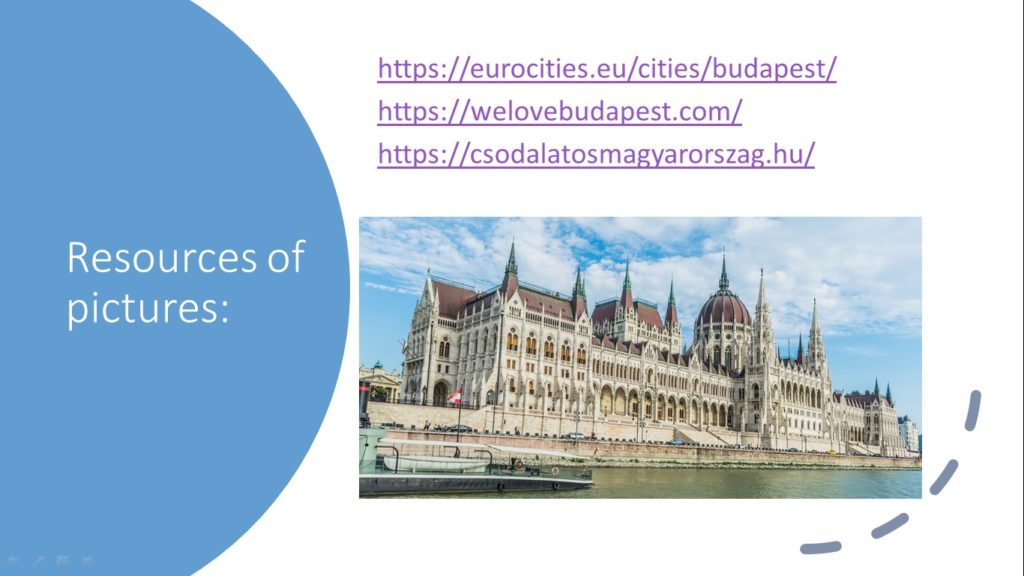
Concerning the development of the third output (Recommendations for an innovative digital curriculum for secondary school teachers) all the school teachers involved undertook a wide research on digital information and media competences (DMI) are set and deployed in the school environment:
– How DMI competences at schools are conceived and outlined in formal docs at national and local level;
– How DMI competences are included into the secondary school teachers’ curricula;
– DMI training delivery for school teachers over initial career
– DMI life long learning strategies for school teachers
– DMI school formal delivery for students
The works carried out by school teachers provided a stunning framework on the topic accomplishing with success the first part of the Output.
After the local pilots the work will be continued through the elaboration of the comparative report between the different settings and the development of recommendations according with the pilots’ results and feedbacks as well as the digital habits of students and teachers already collected through related quesitonnaires.
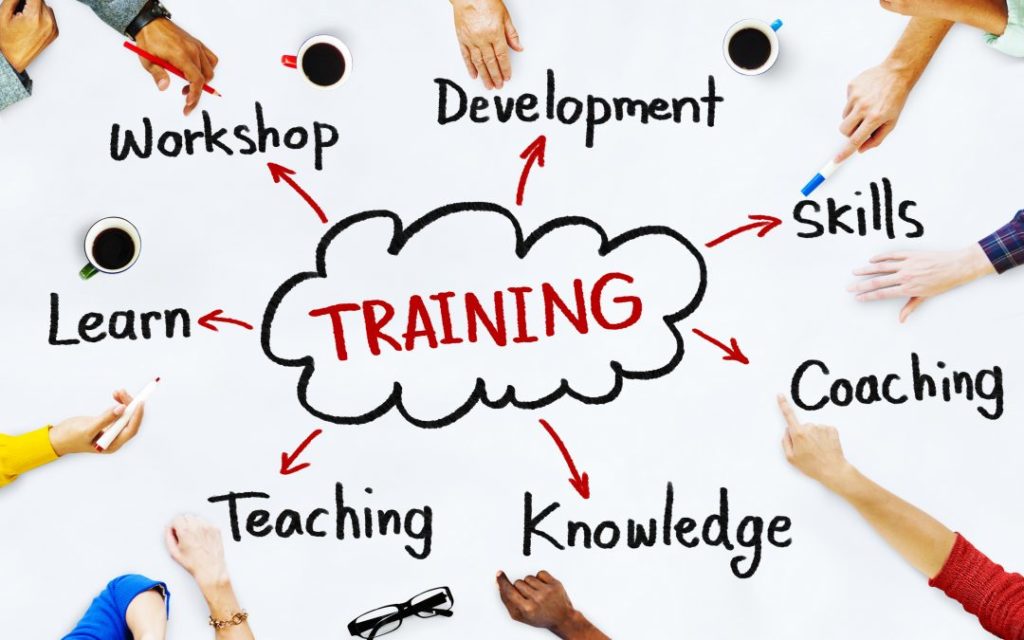
The upcoming landmark events for the C&D project is the realisation of the the Joint Staff Training Event . All the contents to later implement local pilots will be shared by UCSC and Archilabò in the wonderful frame of Barreiro (PT).
Keep yourself updated with news !
Kick-off meeting | 26-27 November 2020
✅ For the Italian version please click here 🇮🇹
The kick-off meeting was held over 26th-27th November 2020 on virtual platform due to Covid-19 situation.
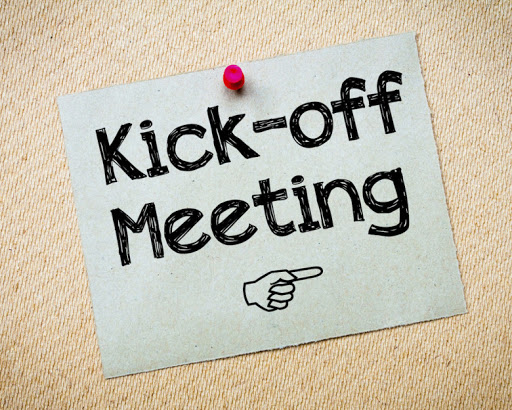
The overview started with a reflection on the European Union efforts on tackling fake news from 2015 on, the lacks recorded at European level concerning digital education at school, the gender divide and the mismatch between digital skills and the role upper secondary schools can play in Europe.
Objectives, activities and target groups were clearly mentioned as well as the type of stakeholders we aim to address our products to.
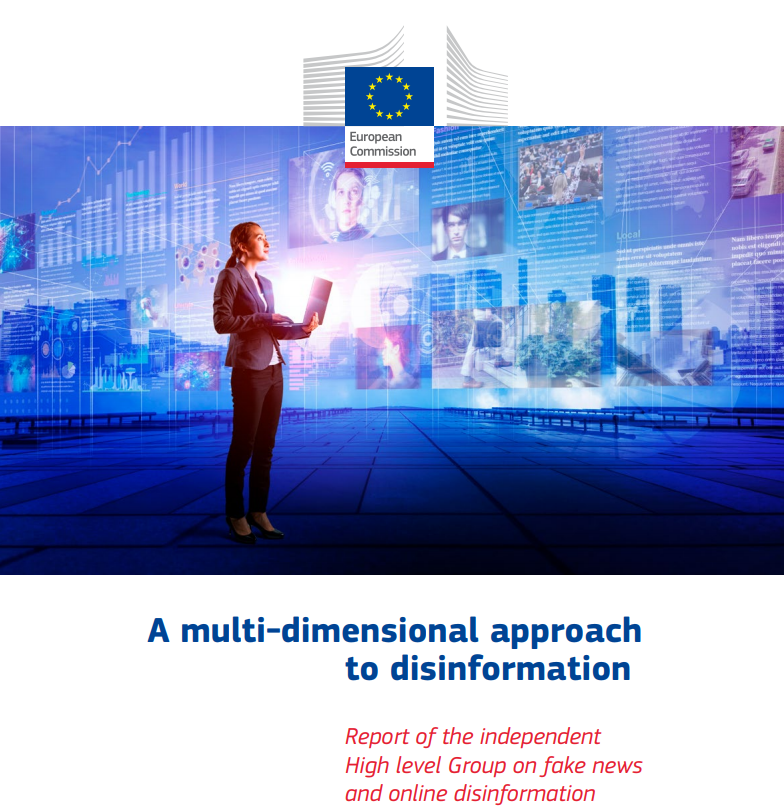
Click here to have an insight on Kick-off main topics !
Particular attention was reserved to the explanation of the next Joint Staff Training Event as fundamental moment for the Check&Design project.
